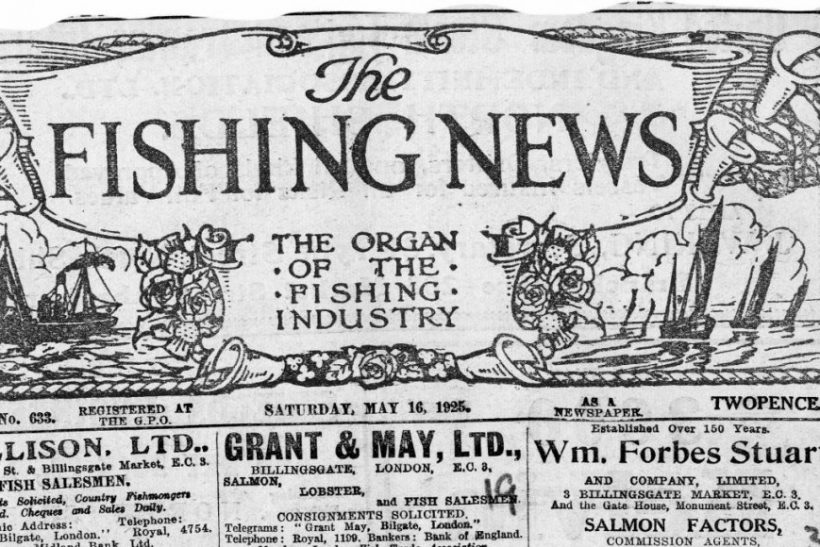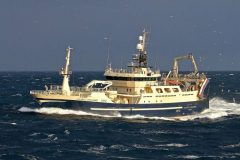The mid 1920s saw a wealth of creativity, from archetypal literature to innovative London bus design and the development of television.
Notable triumphs in 1925 include the first television image being transmitted in London by John Baird and the introduction of the city’s first double-decker buses with covered tops. Two iconic novels were published in this year: The Great Gatsby by F.Scott Fitzgerald and Virginia Woolf’s Mrs Dalloway. And on a slightly different note, Adolf Hitler released volume one of his personal manifesto Mein Kampf. Car manufacturer Vauxhall was purchased by American car-making giant General Motors for $2.5 million (£1.5 million approx), and Benito Mussolini announced his plans to take dictatorial powers over Italy.
Future Conservative politician and Prime Minister Margaret Thatcher (1925-2013) was born in October, while the country was under the charge of Prime Minister Stanley Baldwin, who dominated the government between the two world wars.
British explorer Percy Fawcett sent a last telegram to his wife before he disappeared in the Amazon, while Rene Lacoste won Wimbledon (6-3, 6-3, 4-6, 8-6).
The fishing industry was enduring a tough period, with the post-war years proving more difficult in terms of economics than the hostilities, and an initial brief and excited boom period was succeeded by a time of intense depression.
Fishermen who had served the nation gallantly during the war returned to civil life with high hopes of what they would do when the boats were reconditioned and fishing was resumed. Considerable profits had been made during the war by the few old boats that were left fishing, and these profits continued for a brief period after peace had been declared. This gave a wholly false idea of the prospects of the industry and encouraged outsiders to rush in and offer exorbitant sums for trawlers.
Soon, however, the situation changed. By the end of June more than 1,400 fishing vessels belonging to ports in England and Wales had been released from naval service, and after being sent for reconditioning, these boats were rapidly returned to the fishing fleet. Together with the trawlers that had been taken from Germany as reparations, and the trawlers and drifters built for the Admiralty during the war, this influx led to a marked increase in catching power and further aggravated a slump in the value of vessels.
Have you enjoyed this blast from commercial fishing’s past? Each week we look back at our wealth of history in Fishing News, so stay tuned for the next instalment of nostalgia…


The mid 1920s saw a wealth of creativity, from archetypal literature to innovative London bus design and the development of television. Notable triumphs in 1925 include the first television image being transmitted in London by John Baird and the introduction of the city’s first double-decker buses with covered tops. Two iconic novels were published in this year: The Great Gatsby by F.Scott Fitzgerald and Virginia Woolf’s Mrs Dalloway. And on a slightly different note, Adolf Hitler released volume one of his personal manifesto Mein Kampf. Car manufacturer Vauxhall was purchased by American car-making giant General Motors for $2.5 million (£1.5 million approx), and Benito Mussolini announced his plans to take dictatorial powers over Italy. 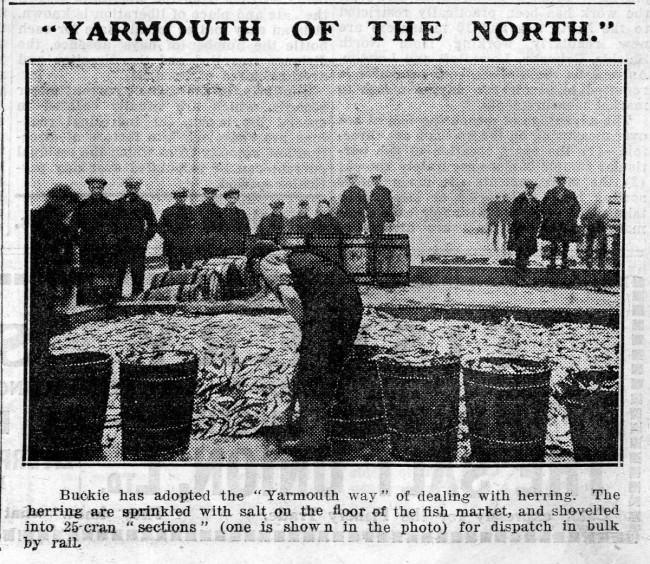 Future Conservative politician and Prime Minister Margaret Thatcher (1925-2013) was born in October, while the country was under the charge of Prime Minister Stanley Baldwin, who dominated the government between the two world wars. British explorer Percy Fawcett sent a last telegram to his wife before he disappeared in the Amazon, while Rene Lacoste won Wimbledon (6-3, 6-3, 4-6, 8-6).
Future Conservative politician and Prime Minister Margaret Thatcher (1925-2013) was born in October, while the country was under the charge of Prime Minister Stanley Baldwin, who dominated the government between the two world wars. British explorer Percy Fawcett sent a last telegram to his wife before he disappeared in the Amazon, while Rene Lacoste won Wimbledon (6-3, 6-3, 4-6, 8-6). 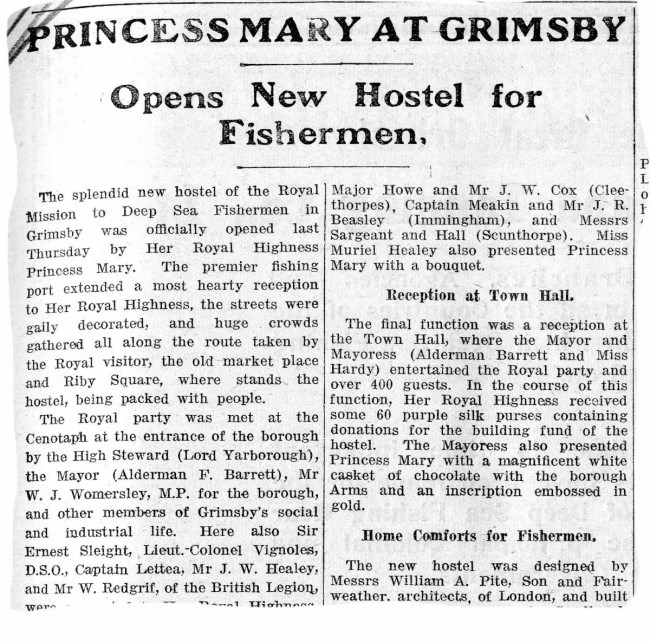 The fishing industry was enduring a tough period, with the post-war years proving more difficult in terms of economics than the hostilities, and an initial brief and excited boom period was succeeded by a time of intense depression. Fishermen who had served the nation gallantly during the war returned to civil life with high hopes of what they would do when the boats were reconditioned and fishing was resumed. Considerable profits had been made during the war by the few old boats that were left fishing, and these profits continued for a brief period after peace had been declared. This gave a wholly false idea of the prospects of the industry and encouraged outsiders to rush in and offer exorbitant sums for trawlers.
The fishing industry was enduring a tough period, with the post-war years proving more difficult in terms of economics than the hostilities, and an initial brief and excited boom period was succeeded by a time of intense depression. Fishermen who had served the nation gallantly during the war returned to civil life with high hopes of what they would do when the boats were reconditioned and fishing was resumed. Considerable profits had been made during the war by the few old boats that were left fishing, and these profits continued for a brief period after peace had been declared. This gave a wholly false idea of the prospects of the industry and encouraged outsiders to rush in and offer exorbitant sums for trawlers. 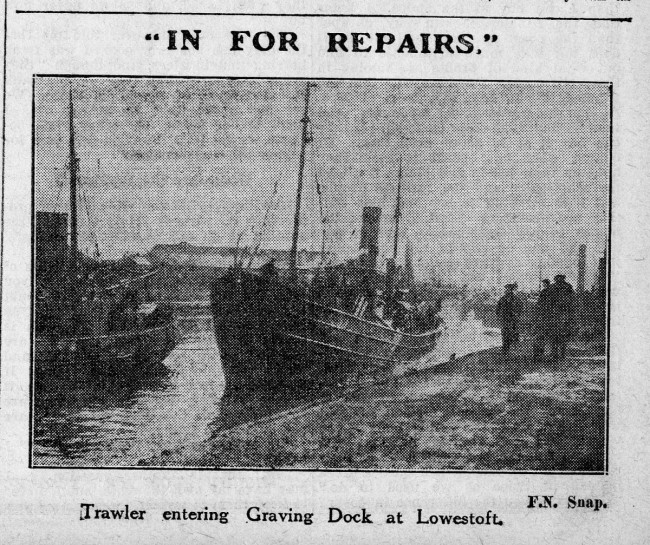 Soon, however, the situation changed. By the end of June more than 1,400 fishing vessels belonging to ports in England and Wales had been released from naval service, and after being sent for reconditioning, these boats were rapidly returned to the fishing fleet. Together with the trawlers that had been taken from Germany as reparations, and the trawlers and drifters built for the Admiralty during the war, this influx led to a marked increase in catching power and further aggravated a slump in the value of vessels.
Soon, however, the situation changed. By the end of June more than 1,400 fishing vessels belonging to ports in England and Wales had been released from naval service, and after being sent for reconditioning, these boats were rapidly returned to the fishing fleet. Together with the trawlers that had been taken from Germany as reparations, and the trawlers and drifters built for the Admiralty during the war, this influx led to a marked increase in catching power and further aggravated a slump in the value of vessels. 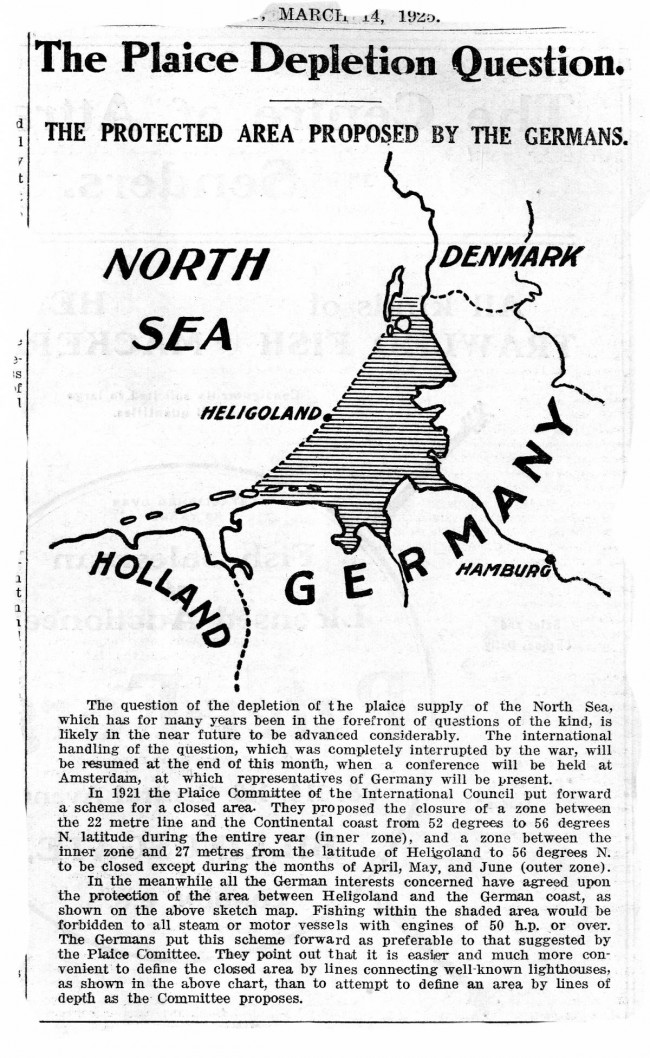 Have you enjoyed this blast from commercial fishing’s past? Each week we look back at our wealth of history in Fishing News, so stay tuned for the next instalment of nostalgia…
Have you enjoyed this blast from commercial fishing’s past? Each week we look back at our wealth of history in Fishing News, so stay tuned for the next instalment of nostalgia…

